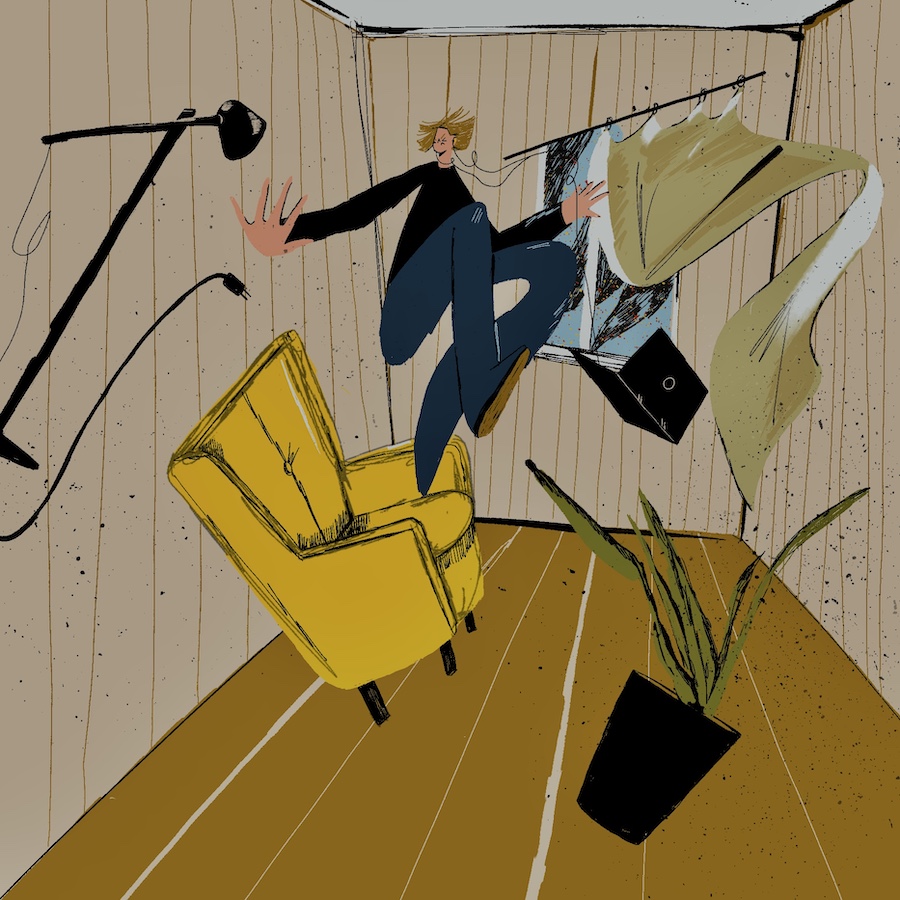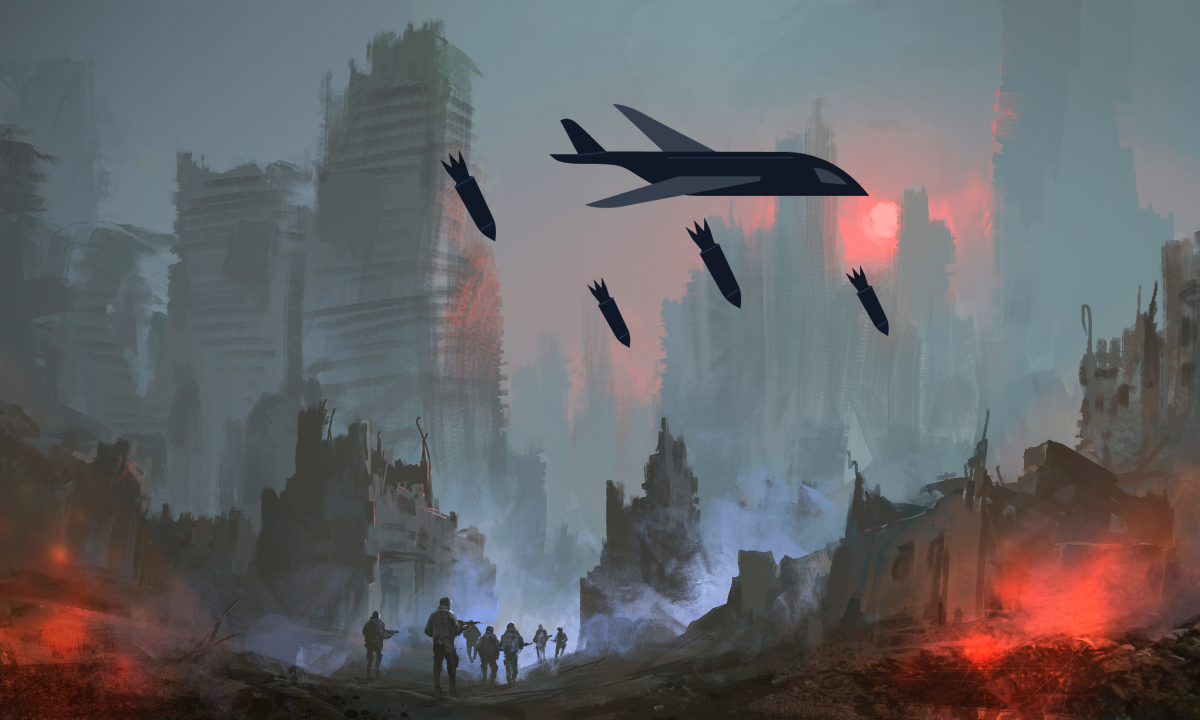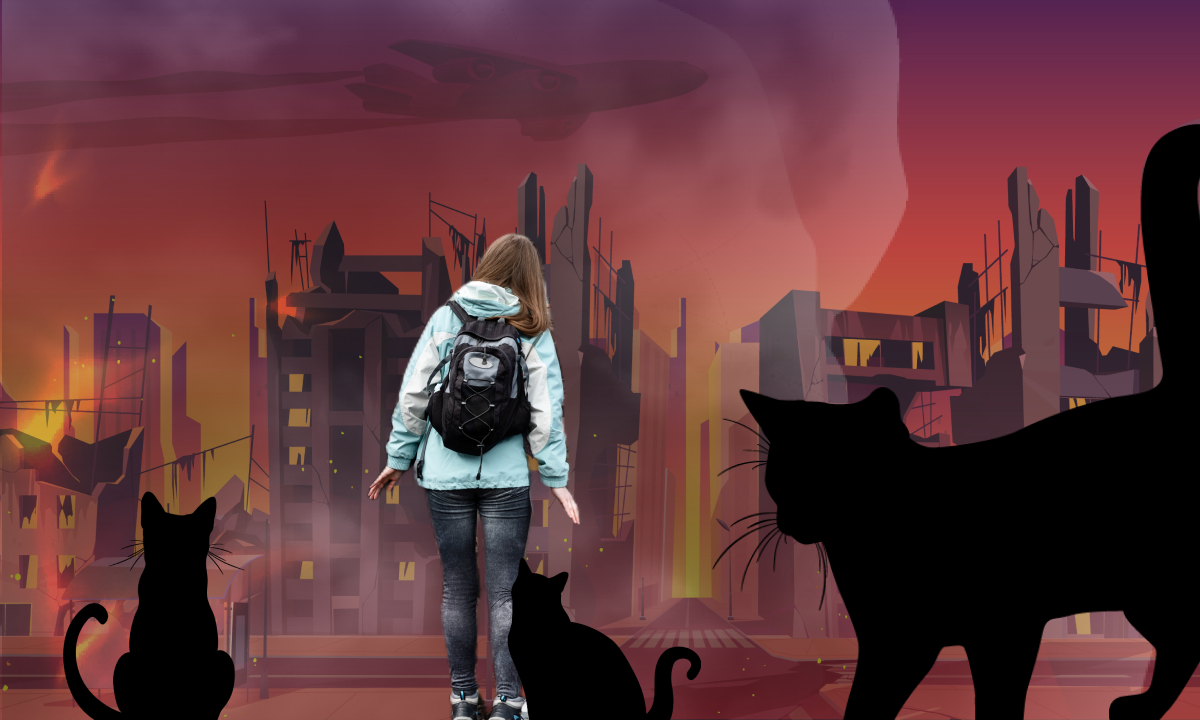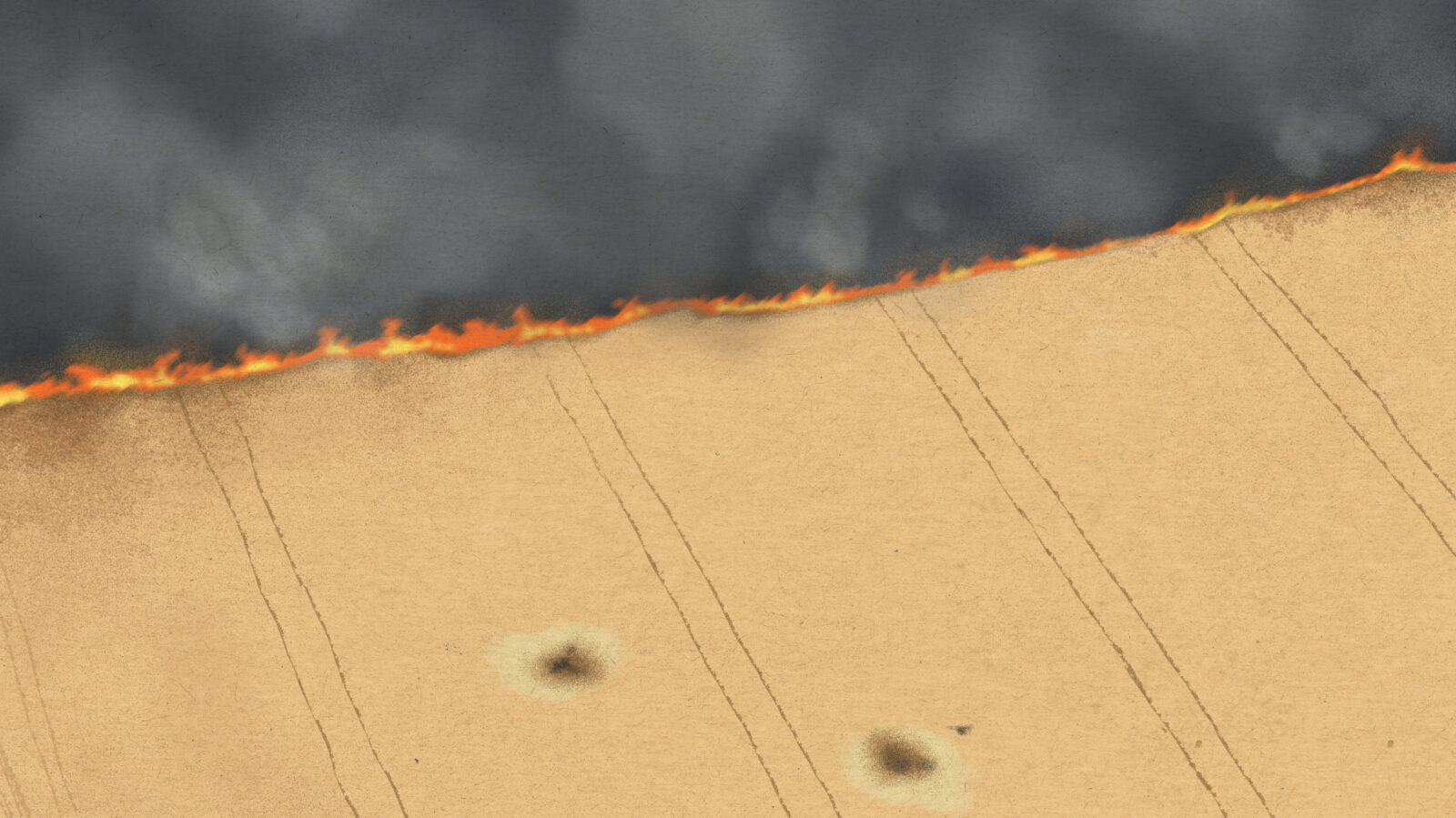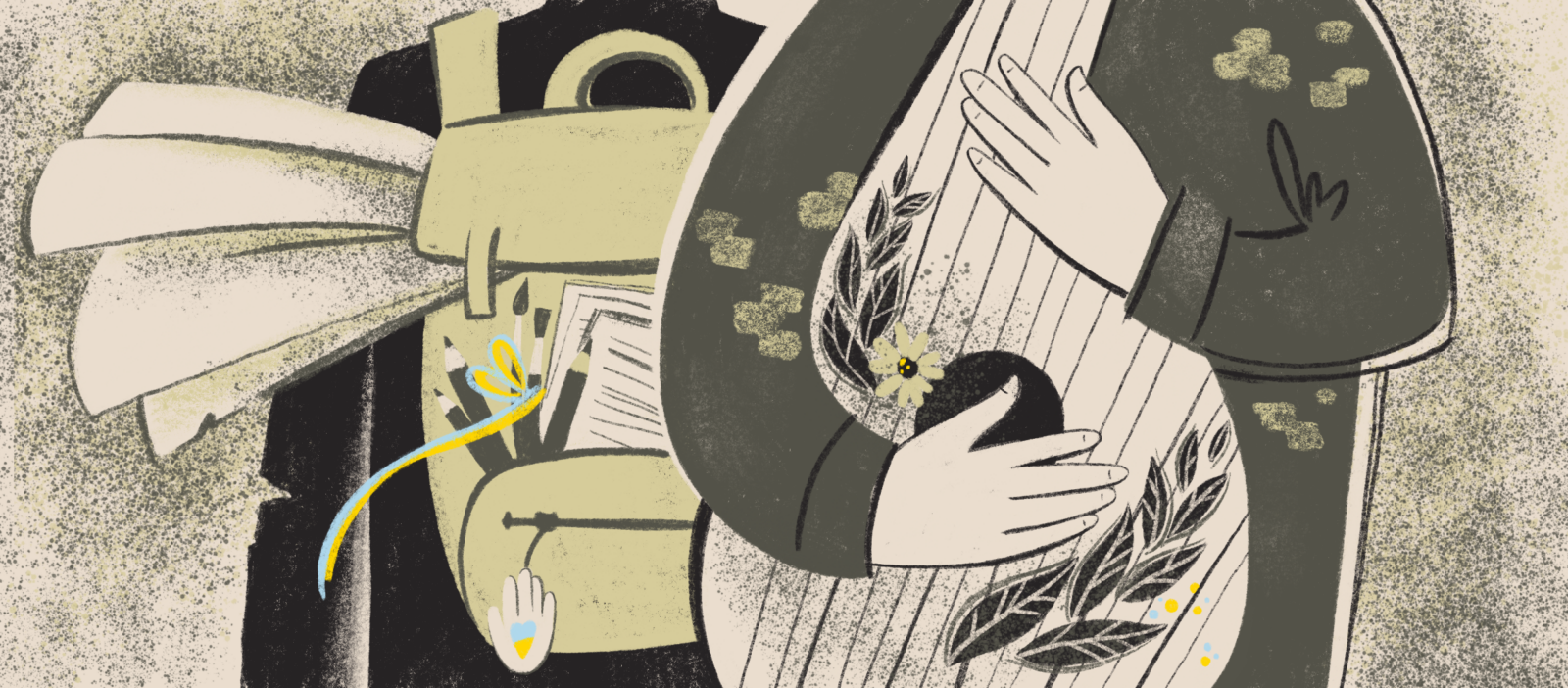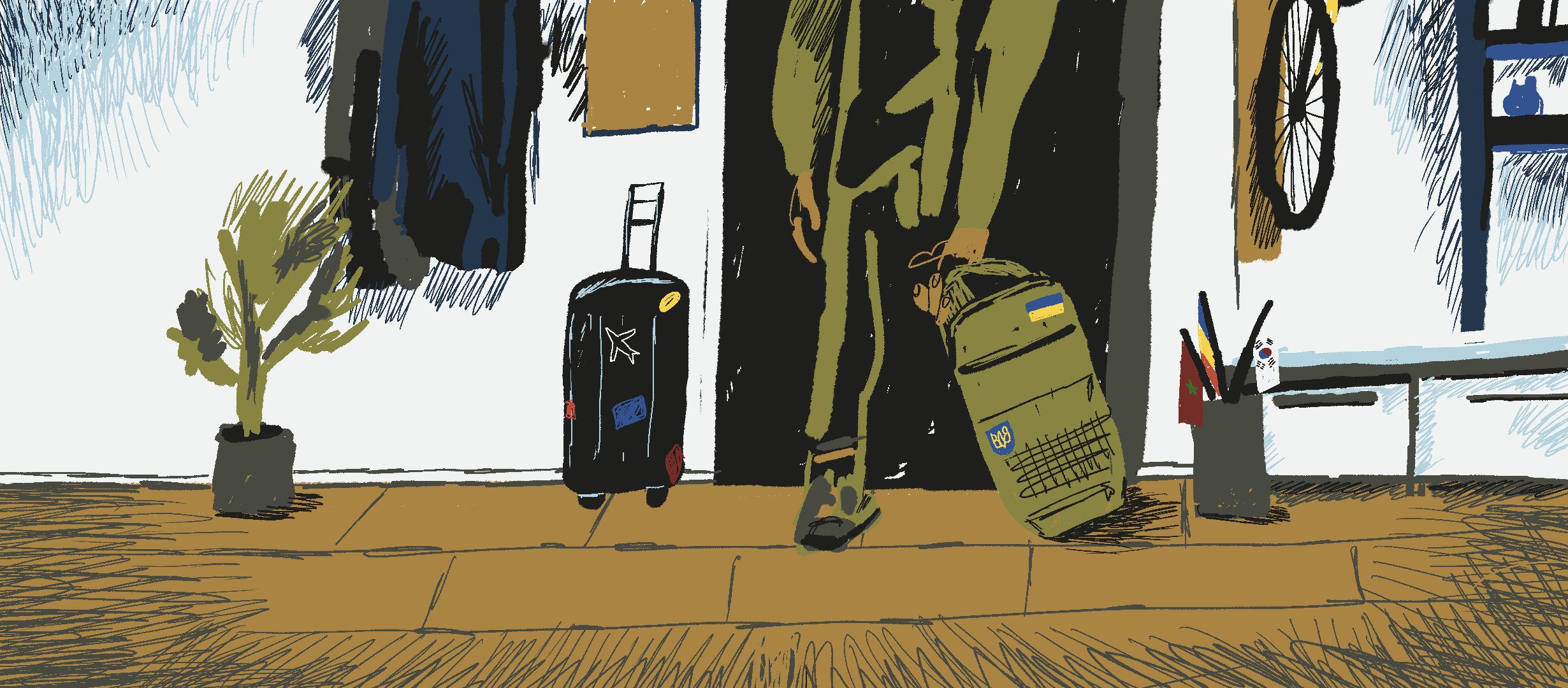Illustrated by Dasha Krotiuk
“At 11 a.m. I heard a loud explosion,” recalls Daria Horho, 32, Kyiv. On March 14, the wreckage of a missile hit her house. “It was totally unexpected, in broad daylight, with no siren working.”
Daria was having a business call. Before she could say anything, something exploded outside.
“I didn’t see the fire, I just heard an explosion, felt the house jump up with me inside. I looked out of the window and saw glass falling from the opposite house.”
Daria closed her laptop, put it in her already packed emergency backpack and ran outside in her pajamas. Wreckage was all around the archway near the house. There was a huge crater where the missile hit, 15 meters away from her house. A fire broke out in some apartments.
“I saw a man’s body, maybe he was covered with wreckage, or maybe he was killed by the blast wave,” Daria says.
Immediately after that she ran to the basement of her parents’ house nearby. There she sat for two hours, dazed. As she talks about that, she hears explosions again: “Here, something else is exploding outside, right now.” She is sitting in a hallway because of the siren.
“My windows are still ok. I joked that it was the best ad for the window company. That explosion affected at least four houses. The lower floors in my neighborhood are totally smashed. Luckily, there were stores and a library there, they were closed, so there were no people there, but everything was completely burned.
Daria does not plan to leave Kyiv, she didn’t change her mind even after the missile hit her house. “I am young and strong, I will be able to help even in the worst-case scenario, a blockade,” Daria explains.
Another reason why Daria is still in her house is because on February 24, her granny was confirmed to have COVID, and she was feeling really bad. Daria managed to find an oxygen concentrator and save her grandma’s life. The concentrator is powered by the grid, so her grandma cannot be taken out of the city now.
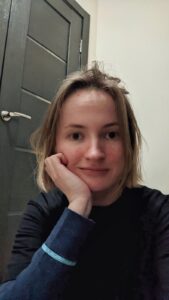
“War is irrational. The worst part for me now is that all logic is gone. I don’t see any causal relationships in why these people are dying,” she says.
Daria says that she is a little calmer now. She’s got some new skills: how to run, to pack, what food to buy. She still works, and that helps her concentrate. This year, she was promoted to COO at a marketing research agency. On the first day of war she had an appointed interview with a candidate for a new position.
“On the first week of the full-scale Russia’s invasion of Ukraine, I was not scared, I was furious. I wanted to tear someone apart at the frontline but I had to take care of my grandma. The second week, my core emotion was rage, it helped me mobilize. The third week, the rage changed to concentration. I focus more on how lucky I was, not on any bad things.”
She recalls how her colleague from Chernihiv who had not gotten in touch for three days texted her: “Our neighborhood is surrounded and shelled from everywhere. But our army is fighting back. They are so good, we will win!” “When I read something like that, I understand that I have to believe in victory and don’t even think about any other options,” Daria says. “I’m scared that some of the people I love will die. It’s hard. I already lost my mom when I was 26.”
Daria’s immediate plans are to survive. Later, she plans to combine volunteering with her work and caring for her grandma. She also wants to start doing things she loved before: sports, singing, playing musical instruments, and taking online courses.
Translated by Oksana Biliavska

